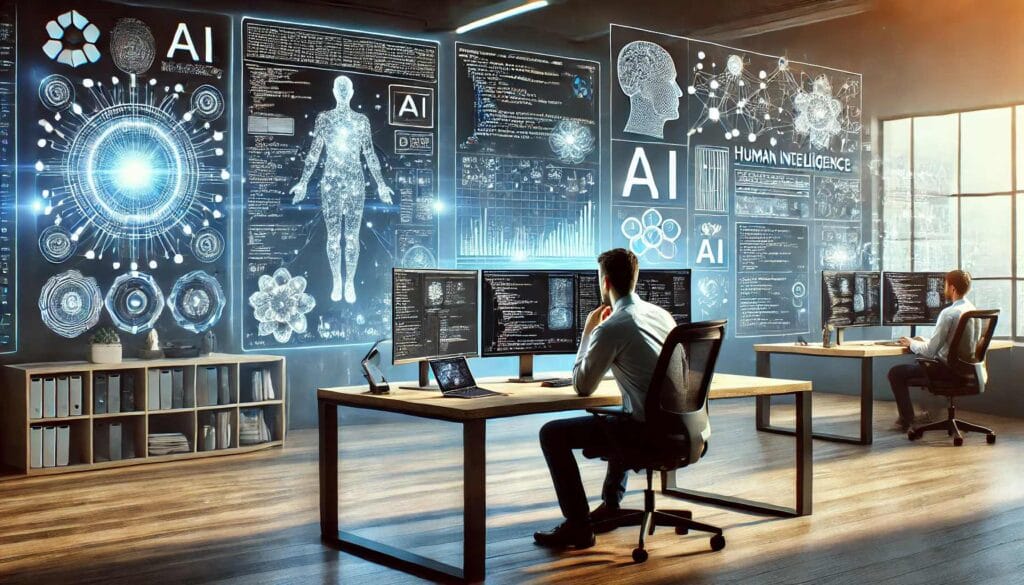The Challenges Programmers Face with the Rise and Advancement of AI

Artificial Intelligence (AI) has transformed numerous industries, including software development. While AI brings many benefits, it has also introduced significant challenges for programmers. As AI technologies continue to evolve, developers find themselves navigating a complex landscape that affects both their work processes and career outlook. Here are some of the key challenges programmers are encountering with the rise of AI:
1. Job Security Concerns
As AI becomes more capable of automating coding tasks, many programmers fear that their jobs could become obsolete. AI-powered tools, such as code generators and automatic debugging systems, can write, optimize, and even correct code with increasing efficiency. While some see these tools as helpful assistants, others worry that they could replace human developers altogether, especially for simpler or repetitive coding tasks.
2. The Need for New Skills
AI’s rapid advancement means that traditional programming skills alone are no longer sufficient. Programmers must now learn new AI-related technologies, such as machine learning, natural language processing, and data science. The ability to work with AI algorithms, train models, and understand large datasets is becoming critical. This has led to a shift in the skillset required, forcing developers to constantly upskill to stay relevant in the industry.
3. Complexity in Debugging and Maintenance
AI-powered applications can be difficult to debug and maintain. Unlike traditional code, which follows predefined logic, AI models operate in a more abstract manner, often making decisions based on data patterns rather than explicit instructions. This “black box” nature of AI systems makes it challenging to trace errors or understand why an AI model behaves a certain way. Consequently, programmers must deal with increased complexity when trying to fix issues in AI-driven applications.
4. Ethical and Bias Concerns
AI systems can unintentionally inherit biases from the data they are trained on, leading to unfair or discriminatory outcomes. For programmers, this introduces an ethical dimension to their work, requiring them to be vigilant about data quality and fairness. Ensuring that AI models are transparent, unbiased, and ethical has become an additional responsibility for developers, adding pressure to their already demanding roles.
5. Collaboration with AI
Rather than viewing AI as a competitor, many programmers are learning how to collaborate with AI. AI tools can automate routine tasks like code testing, documentation, and even bug fixing, freeing developers to focus on more creative and complex aspects of software development. However, this also requires programmers to develop a new mindset—one that involves working alongside intelligent systems rather than merely relying on their own expertise.
6. Increased Competition
As AI tools lower the barrier to entry for programming, more people are becoming capable of writing code without formal training. This democratization of coding has increased competition in the job market, with AI empowering even non-programmers to build applications. For experienced developers, this means facing competition not only from peers but also from an expanding pool of newcomers, making it essential to differentiate themselves through unique expertise or advanced skills.
Conclusion
The rise of AI presents both opportunities and challenges for programmers. While AI tools can enhance productivity and simplify certain tasks, they also require developers to adapt, upskill, and confront new ethical considerations. The future of programming in an AI-driven world will likely depend on a balance between leveraging AI’s capabilities and maintaining the unique problem-solving and creative skills that human developers bring to the table.
Source : Medium.com





After 부산여성전용마사지,
I felt lighter physically and emotionally.